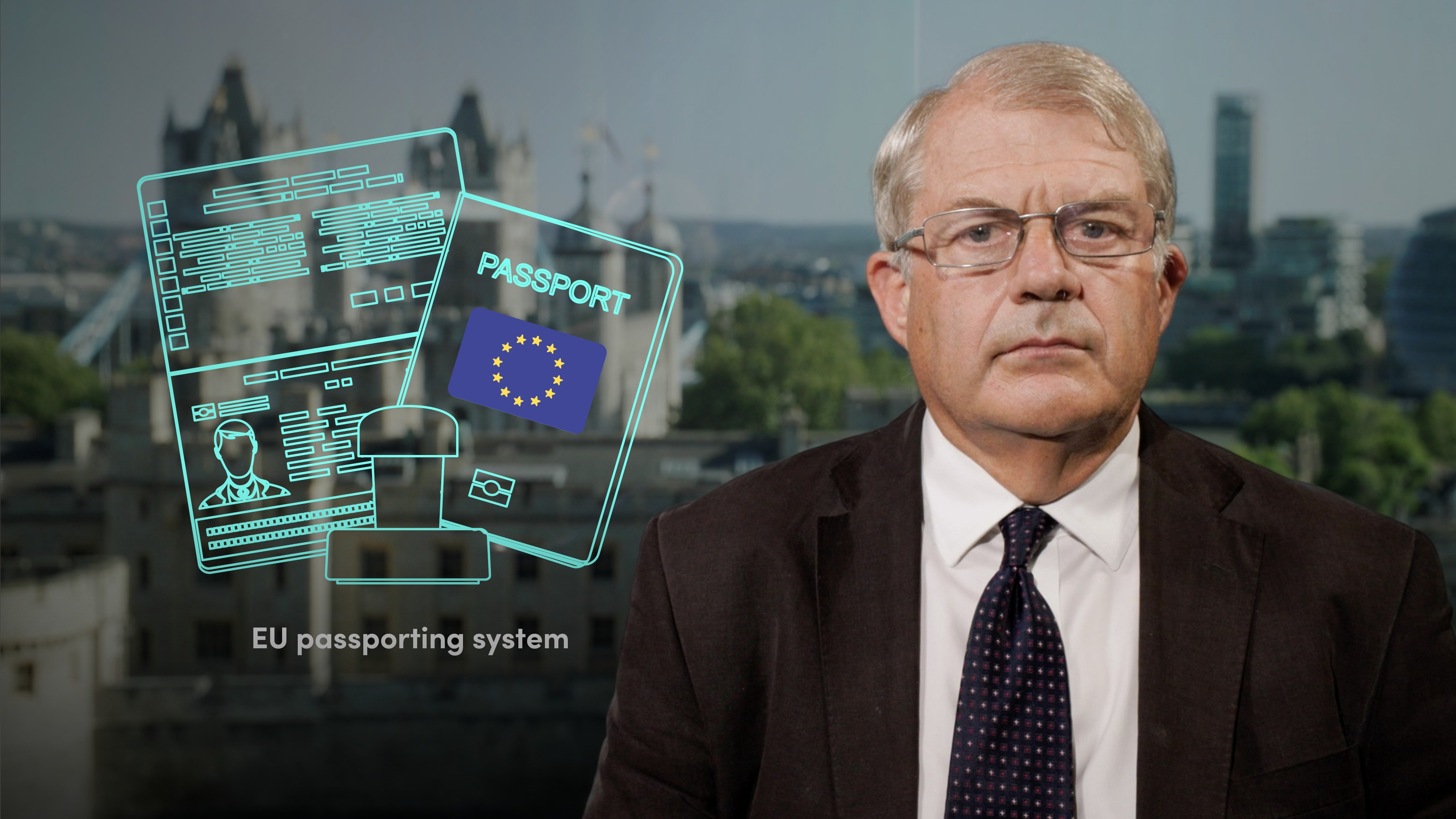
Background to Brexit

Sir Mark Boleat
40 years: Executive leadership & banking
In June 2016 Britain voted to leave the European Union. Sir Mark Boleat explains the significance of this decision in regards to the policy debate, the transitional challenges and the post-Brexit landscape in terms of access to financial services.
In June 2016 Britain voted to leave the European Union. Sir Mark Boleat explains the significance of this decision in regards to the policy debate, the transitional challenges and the post-Brexit landscape in terms of access to financial services.

Background to Brexit
9 mins 50 secs
Key learning objectives:
Explain why Brexit impacts the financial services industry in Britain
Define passporting and describe proposed alternatives to passporting
Explain the issues Britain will face post-Brexit in regards to contract continuity and securing access to the EU’s single market
Overview:
Voters approved of the notion for Britain to leave the European Union in June 2016, a decision known as Brexit. This decision will greatly impact the financial services industry in Britain. With “passporting” no longer an option, the problems regarding contract continuity and the limited level of access firms based in the UK have to the EU single market will persist.
What is Brexit and where is it headed?
In June 2016 Britain voted to leave the European Union. However, it did not vote, and was not asked to vote, on where it was going. It has taken nearly four years for Britain to formally leave the EU with a complex Withdrawal Agreement, a transitional period up to the end of 2020 (which can be extended for two years), and a vague political agreement on the future trading arrangement, but which clearly envisages Britain being outside the single market for services.Why does Brexit impact the financial services industry in Britain?
A significant proportion of the financial services industry based in Britain is international in nature, serving corporates, governments and people throughout the world. This sector of the market is to a large extent dependent on Britain being in the European single market, which covers almost all financial services.What is “passporting”?
Passporting - authorisation in one country means authorisation for every country.
For example, an insurance company based in one member-state can provide its services throughout the European Economic Area without the need to establish separate businesses in each member-state.
Will Britain secure favoured access to the EU post-Brexit?
In short, no, but Britain certainly tried to achieve an arrangement similar to passporting.
In January 2017 TheCityUK, the overall representative body for the financial services industry, proposed a bespoke agreement delivering mutual market access. The focus of this agreement was to recognise that regulatory regimes, while different, can produce similar outcomes and that authorisation in one country would continue to mean the ability to do business throughout the EU 27 plus Britain on the basis of a single authorisation.
It would result in the UK having the benefit of being in the single market and would mark a significant departure from the principles on which the EU operates. The reaction from the EU 27 was not favourable. In the “Chequers agreement” in the Summer of 2018, this policy was ditched and the British government meekly accepted the EU’s position that Britain will become a “third country” after Brexit, with access to the single market through the same arrangements as other third countries.
Why is the EU reluctant to provide Britain favoured access to the EU’s single market?
The European Union is a concept, it has always been a political project, not an economic one, and with the exception of Britain the members are firmly committed to it, and willing to make quite substantial sacrifices to preserve it.Why is contract continuity a problem for insurers post-Brexit?
The Association of British Insurers (ABI) has raised the issue of cross-border contracts written pre-Brexit that will still be in operation post-Brexit.
- For example liability contracts that can run for 10 years and pension contracts that can run for 30 years “cannot be transferred safely and quickly to a new EU location. Special arrangements would be needed to transfer the contracts, covering both legal form and regulatory responsibility”.
- The ABI went on: “If nothing is fixed, insurers will be left in an impossible position and face an unacceptable choice: break their promise to customers, or risk breaking the law.”
- Transferring contracts to another EU jurisdiction does not work because this is a judicial process and requires at least two years.
What access will financial service firms, based in Britain, have to the EU market after the transition period?
The current equivalence regime operated by the EU is not a viable basis for businesses based in the UK to conduct activity in the EU 27. The formal position is set out in just three paragraphs in the October 2019 Political Agreement and is basically the existing EU equivalence regime procedures.
These procedures allow the EU Commission to certify that the regulatory regime in another jurisdiction produces equivalent outcomes to that of the EU, and therefore institutions based in that jurisdiction can do business in the single market.
However, these equivalence arrangements are nowhere near a substitute for the existing passporting arrangements because:
- They cover less than one third of financial services, and do not include mainstream banking and insurance.
- In practice, the process of granting or withholding equivalence is political as much as technical. For example, regarding the Swiss stock exchanges where even though the technical requirements in respect of equivalence were met, for political reasons, the necessary equivalence approval was not granted.
- There is no negotiation on whether equivalence can be granted; it is a one way process, and while a jurisdiction may make representations it has no say in the final outcome.

Sir Mark Boleat
There are no available Videos from "Sir Mark Boleat"

